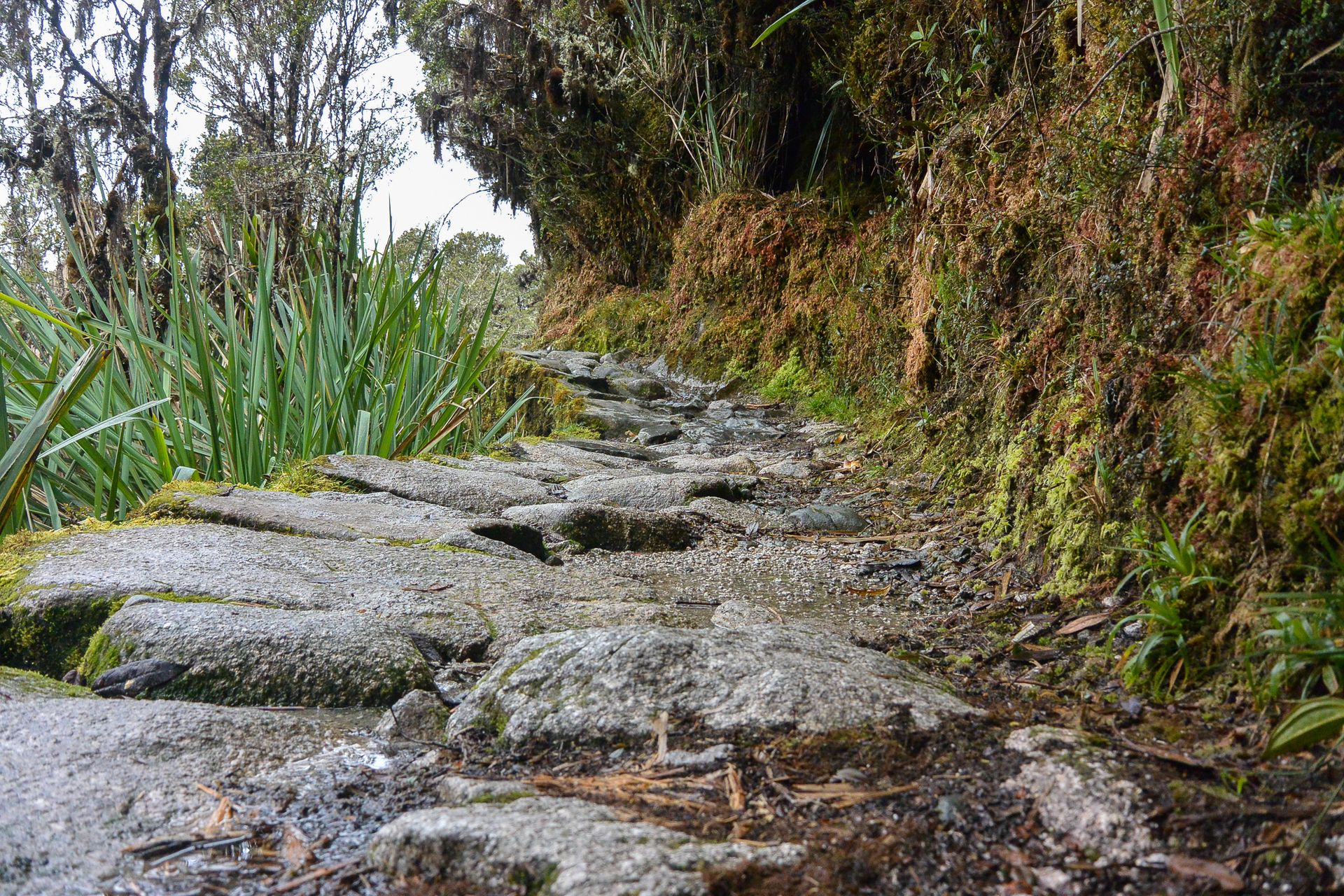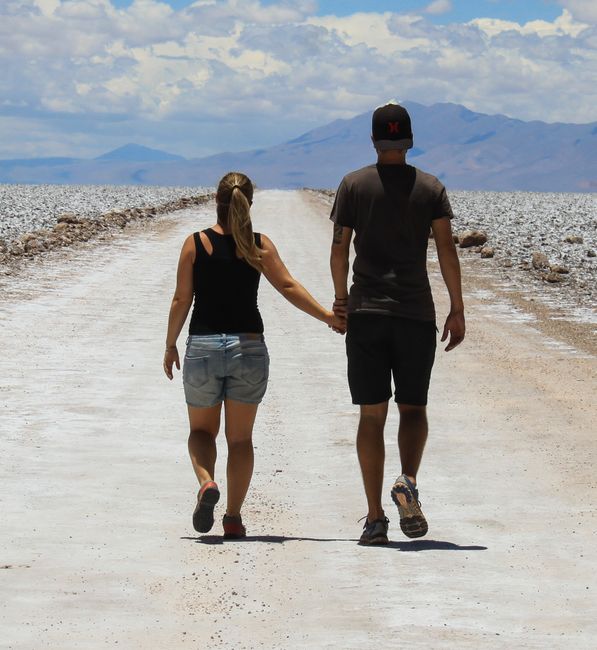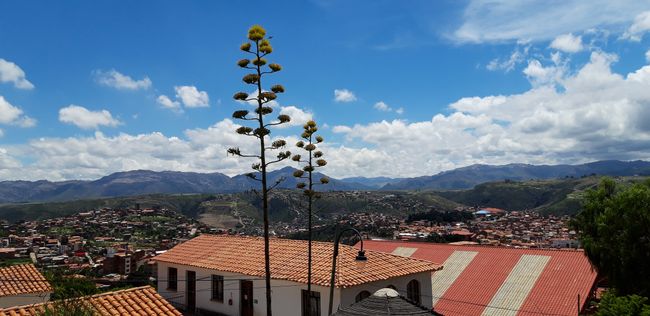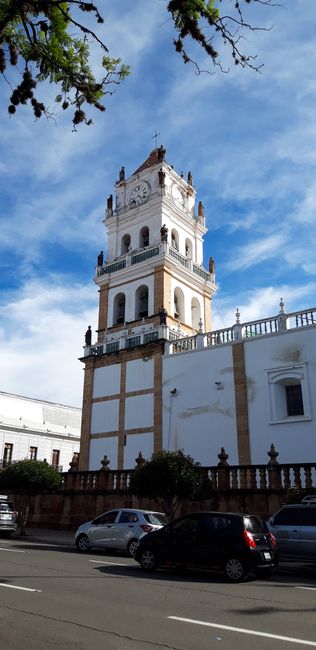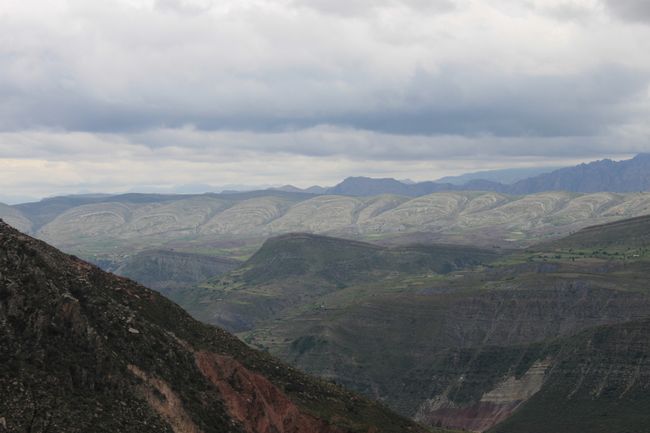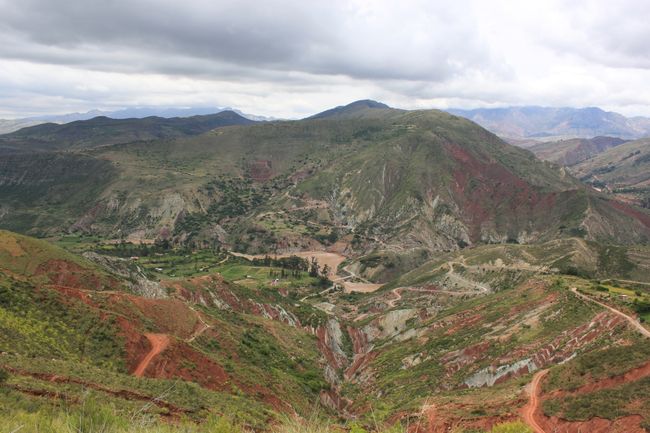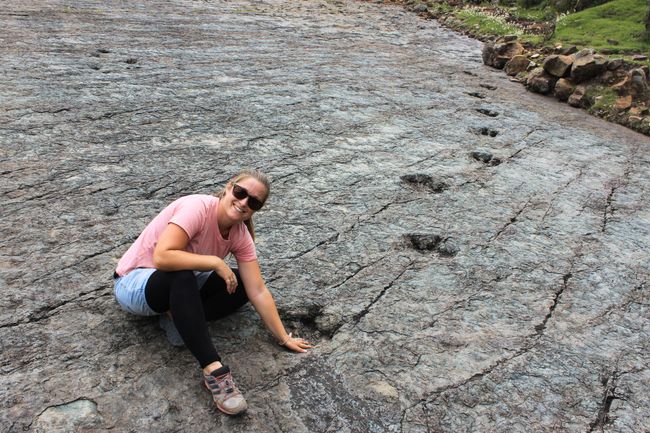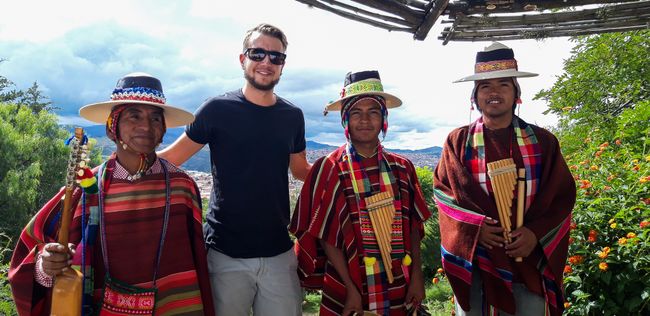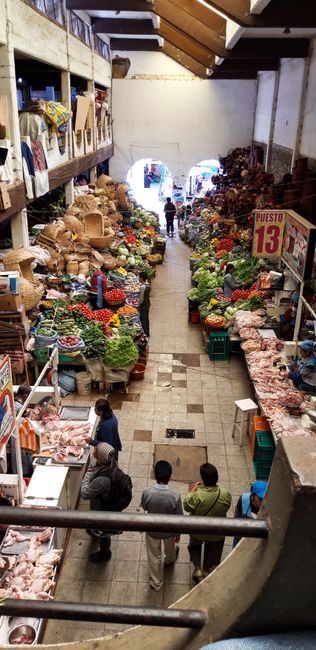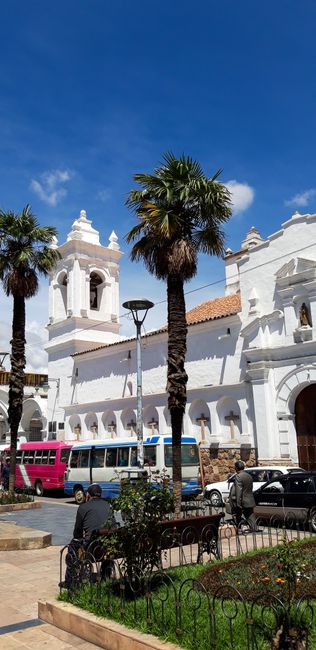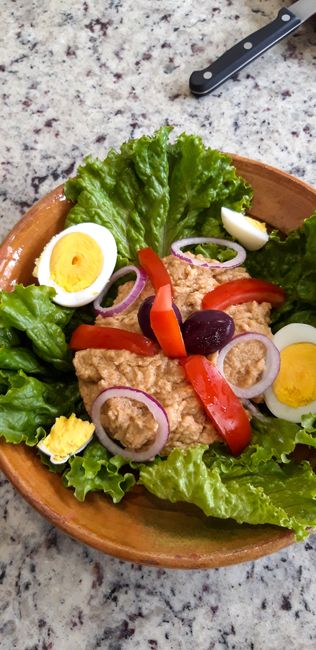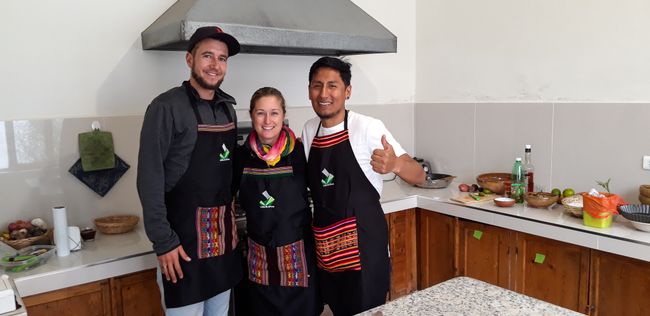Culture days in Sucre
ପ୍ରକାଶିତ |: 13.02.2019
ସମ୍ବାଦପତ୍ରକୁ ସବସ୍କ୍ରାଇବ କରନ୍ତୁ |
After two days in the highest city in the world, we moved on to Sucre by bus. The capital of Bolivia - no, it is not La Paz - is located at around 2,700 meters above sea level and is characterized by white colonial buildings. In good weather - and it was at least on arrival - there is a great cityscape around the main square. We stayed here for about 5 days and planned and did various things.
Maragua Crater
Close to Sucre is a huge crater called Maragua. We took a guided day tour with Condor Trekkers to get here. The company supports local communities and organizations through their activities and took great care of us for the day. From the car ride to the nearby mountains to the 4 km hike on the Inca Trail, to the explanations at the dinosaur tracks and the meals, everything was great. We also had good weather and could enjoy a rain-free day in nature.
Market Visits
Originally, we wanted to visit the (presumably somewhat touristy) market in Tarabuco, 65 km away, on Sunday and had already bought a bus ticket for it. But on Sunday morning it was raining so hard that we checked the situation while still in bed and promptly received a cancellation. The bus didn't run and the market was effectively canceled - so we dedicated ourselves to sleeping in and received a refund.
Instead, we visited the Mercado Central in the city itself. Here you can find everything - from beautiful freshly picked flowers to delicious-looking fruits and vegetables, to rather unappetizing piles of meat on the counters. And of course, other stuff: electronics, cleaning supplies, toys, and souvenirs in abundance.
Museum
Since it was not only raining on Sunday, a visit to the museum was also obvious. And the reviews promised a lot. We paid the entrance fee at the entrance and were immediately equipped with an explanation book in German and entered the first room of the museum. The culture of the various Bolivian Andean peoples and their weaving arts, instruments, and other ritual customs are explained in detail. Unfortunately, we were interrupted in Room 4 of 8 because the museum took a siesta. Although we could have come back later, the waiting time was too long for us, so we quickly looked at the last few rooms. Too bad - it was really interesting. And no - the opening hours on the internet were continuous, without a siesta. Well... While relaxing at the viewpoint above the city, we also met Pedro, who was playing music with his two sons in the cafe next door and invited us to join. A curious and open guy who introduced us to the music of Bolivia a little bit.
Bolivian Cooking Class
At the end of our stay, we chose another bad-weather program item. At La Boca del Sapo, we booked and attended a cooking class - and it was great. Moi welcomed us here (with three other participants) in a well-equipped kitchen, and together we prepared Papas a la Huancaina. After all, there are over 1500 varieties of potatoes in Bolivia - so that was certainly part of it. Exceptionally - due to the preferences of one participant - there was no meat but instead a vegetarian meal was cooked. This is not "normal" for Bolivia. With great attention to detail and detailed explanations, we all cooked an excellent lunch together and mixed a Chuvlay - after all, you also have to drink something. It was a nice change from always eating out - although we found many delicious dishes on our plates here in Sucre.
Next Stop...
Yes, and now we are already in Santa Cruz. Despite the rain, we decided to take a night bus and arrived safely this morning. It is tropical and warm down here, and we are looking forward to the next few days - we will be looking for sloths and condors, and we hope to find both.
ସମ୍ବାଦପତ୍ରକୁ ସବସ୍କ୍ରାଇବ କରନ୍ତୁ |
ଉତ୍ତର
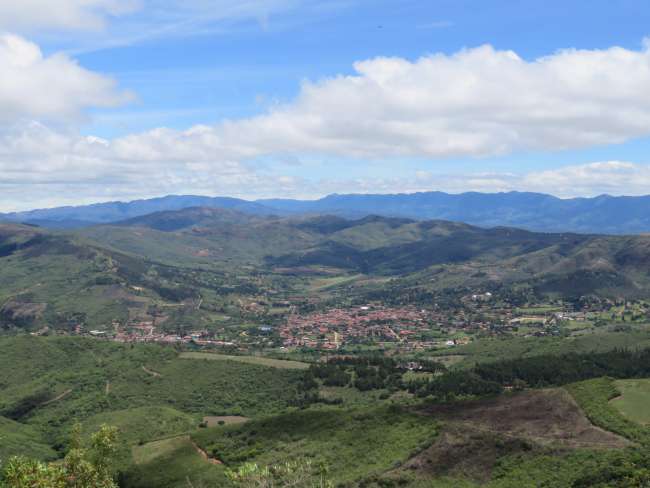
ଭ୍ରମଣ ରିପୋର୍ଟ ବୋଲିଭିଆ
